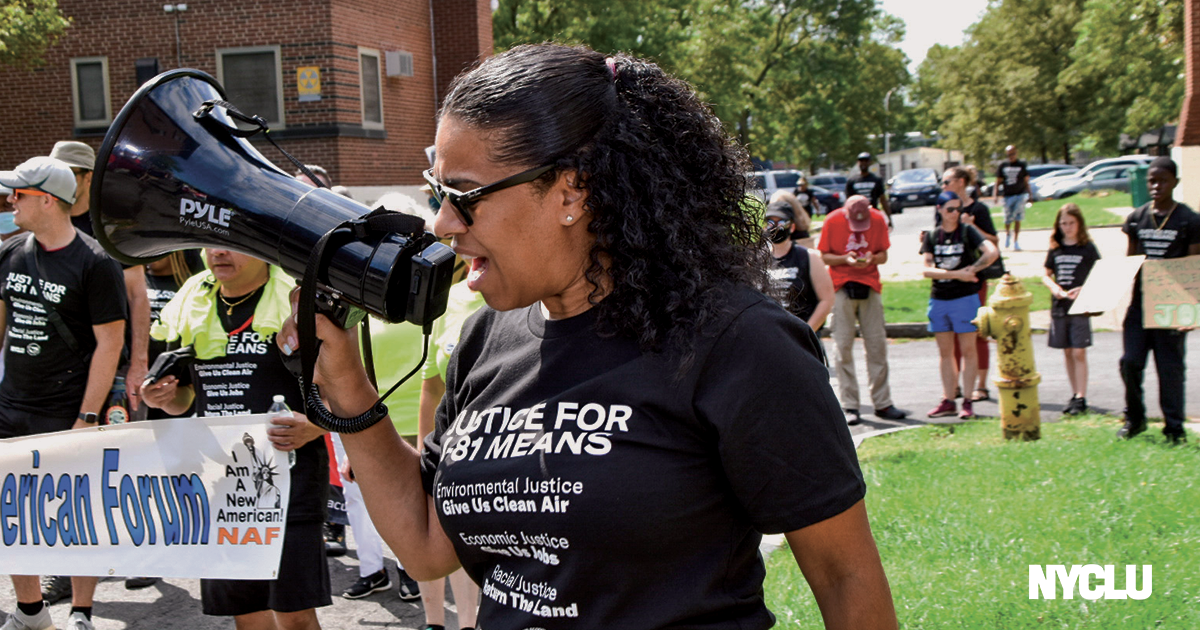New York
NYCLU’s Racial Justice Center Takes Strides To Combat Systemic Racism In New York

NYCLU’s Racial Justice Center: New York City – The New York Civil Liberties Union’s (NYCLU) newly established Racial Justice Center (RJC) has launched a multifaceted campaign to challenge systemic racism and uplift marginalized communities, particularly Black people, to address state-wide disparities.
The RJC seeks to eliminate discriminatory systems that have slowed growth and perpetuated inequality via comprehensive policy change. “Our goal is not only to address the immediate symptoms but also to fundamentally alter the systems that perpetuate racial injustice,” said the RJC’s director, a longtime minority community leader.
The RJC aims to elevate Black New Yorkers’ voices, recognizing the importance of community participation in enduring change. The RJC engages grassroots groups and prioritizes community-centered projects to empower people by integrating their lived experiences into policy solutions.
“The power of community-led movements cannot be underestimated,” said one RJC collaborator. “Our shared experiences shape our collective struggle, and it is essential that our voices are not only heard but actively integrated into the decision-making processes that affect us.”
The RJC is deliberately supporting the racial justice movement while seeking long-term solutions. The RJC aspires to develop a durable and revolutionary movement against structural racism by creating resilient coalitions that cross borders and using data-driven lobbying.
“We understand the challenges ahead are formidable, but our commitment to building a more just and inclusive society for future generations remains unwavering,” said the RJC’s head. “We are determined to foster a lasting legacy of equitable change that resonates across New York and beyond.”
As the RJC continues to shine as a beacon of hope for racial justice, its activities signify a significant change in the state’s approach to eliminating structural racism and creating a more equal future.
Historical Analysis Of New York Racism
New York’s Black neighborhoods are still affected by systematic racism and inequality. Redlining, which denied housing loans to areas with an “infiltration of Negroes,” and transportation policies that demolished Black wealth and communities for suburban development are ingrained in the state’s history. Once prominent, school segregation has become systematic inequities reinforced by coded language and bureaucracy. Even though openly racist behaviors are illegal, systemic racism in New York’s laws and regulations reminds Black people of previous injustices.
White Supremacy Resurfaces In Racial Justice Movements
Despite nationwide cries for racial justice after George Floyd’s killing and demonstrations, New York has seen a troubling rise in white supremacy and racially coded regulations. Political leaders across parties have retreated on their racial justice pledges by using divisive language and enforcing law enforcement methods that disproportionately impact Black and Indigenous communities. Legislative backtracking on significant changes and the rejection of Black people’s lived experiences and struggles have made racial justice more difficult. The politics of critical race theory and efforts to stifle conversations on America’s genuine history of racism highlight the long-standing issues encountered by racial equality and justice advocates.
Building A Resilient Future: NYCLU’s Racial Justice Center As Hope
The New York Civil Liberties Union’s Racial Justice Center (RJC) was founded to fight institutional racism and elevate Black voices and experiences in the face of racial injustice. Restorative justice, desegregation, and environmental racism are among the RJC’s lofty goals, led by a director who has seen the effects of racist policies. The RJC advocates for continuous efforts beyond demonstrations to create a NYCLU culture that integrates racial justice into all aspects of operations. As it fights racism, the RJC asks for assistance and participation in the battle for a more equal and just society.
Read Also: A Cultural Exchange Program’s Influence On My Approach To Addressing Bias
Reforming Policy To Address Systemic Racism
The NYCLU’s Racial Justice Center emphasizes the critical need for comprehensive policy change to address persistent inequality in New York’s neighborhoods, notwithstanding racism’s long history. Beyond exposing racial discrimination, the RJC advocates for legislative changes to eliminate discriminatory structures in institutions. To build a more equitable future for all New Yorkers, the RJC advocates for comprehensive housing reforms that emphasize fair access for underrepresented populations and inclusive educational policies that enable varied and integrated learning settings. The RJC is strengthening its fight against systematic racism and its far-reaching effects via strategic collaborations and legal competence.
Community Voices: Highlighting Black New Yorkers
The NYCLU’s Racial Justice Center prioritizes elevating Black perspectives and experiences in New York. Knowing lived experiences shape advocacy and policy, the RJC promotes a community-centered approach. The RJC empowers community residents to participate in life-changing decisions via grassroots participation and collaborations with local groups. The RJC centers Black New Yorkers’ narratives to ensure that policy solutions are anchored in the lived realities and aspirations of the communities they serve, encouraging empowerment and unity in the struggle for racial justice.
Maintaining Momentum: Long-term Change Strategies
The NYCLU’s Racial Justice Center’s lobbying initiatives are progressing, but momentum and long-term change methods are needed. The RJC is deliberately investing in long-term solutions to alter racial justice in New York, conscious of the cyclical nature of social movements. The RJC is promoting a feeling of responsibility and solidarity among policymakers, community leaders, and campaigners by forging cross-boundary coalitions and alliances. The RJC is laying the groundwork for a resilient movement to eradicate structural racism and create a more equitable and inclusive society for future generations via thorough research, data-driven activism, and constant learning and adaptation.













You must be logged in to post a comment Login